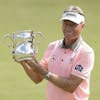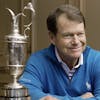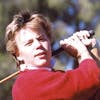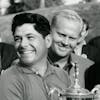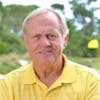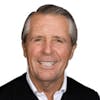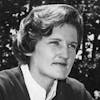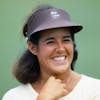Trevor Immelman - Part 3 (The Early Tour Wins)
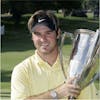
In this captivating third episode of our five-part interview series with Trevor Immelman, "FORE the Good of the Game" takes you on a thrilling journey through the pivotal moments of Immelman's early career. Host Mike Gonzalez and Australian golf legend Bruce Devlin engage Immelman in a vivid recounting of his ascendancy in the world of golf, offering listeners an intimate glimpse into the determination and resilience behind his success.
The episode opens with Immelman reflecting on his first professional win at the Tusker Kenyan Open in 2000, marking a significant turning point in his career. He shares the excitement and pressure of competing against top players like Henrik Stenson and Ernie Els, revealing how these experiences shaped his growth as a golfer. Listeners will be captivated by Immelman's recounting of his victory at the Vodacom Players Championship and the immense confidence boost he gained from triumphing over a golfing titan like Els in his hometown of Cape Town.
Immelman also delves into the challenges he faced while transitioning to the European Tour, offering a candid look at the struggles and learning curves of competing at a higher level. His stories of adapting to life on the road with his then-girlfriend, now-wife, and the decision to change coaches provide a fascinating perspective on the off-course elements that influence a golfer's performance.
The episode crescendos with Immelman's journey to his first PGA Tour victory at the 2006 Western Open, a win that not only solidified his place among the world's best golfers but also came at a personally momentous time, just before the birth of his first child.
Join us in this deeply personal and inspiring episode as Trevor Immelman shares the highs and lows of his early career, offering invaluable insights into the mind of a champion golfer.
Follow our show and/or leave a review/rating on:
Our Website https://www.forethegoodofthegame.com/reviews/new/
Apple Podcasts https://podcasts.apple.com/us/podcast/fore-the-good-of-the-game/id1562581853
Spotify Podcasts https://open.spotify.com/show/0XSuVGjwQg6bm78COkIhZO?si=b4c9d47ea8b24b2d
Google Podcasts https://podcasts.google.com/feed/aHR0cHM6Ly9mZWVkcy5idXp6c3Byb3V0LmNvbS8xNzM3Mjc1LnJzcw
About
"FORE the Good of the Game” is a golf podcast featuring interviews with World Golf Hall of Fame members, winners of major championships and other people of influence in and around the game of golf. Highlighting the positive aspects of the game, we aim to create and provide an engaging and timeless repository of content that listeners can enjoy now and forever. Co-hosted by PGA Tour star Bruce Devlin, our podcast focuses on telling their life stories, in their voices. Join Bruce and Mike Gonzalez “FORE the Good of the Game.”
Thanks so much for listening!
Music playing 00:00
Devlin, Bruce 00:15
You said that you were supposed to pay your dues, you paid them a little bit, but it didn't take you very long to win. Actually, when you think about it in the back in those days, you turn pro when you were 19, in 1999. And then in 2000, you're probably the only player that's ever won his first tournament in Kenya.
Immelman, Trevor 00:40
That's right. And that was the... Tusker Kenyan Open. That's right. That was the first event on the Challenge Tour. So in 1999, I turned pro right after the British Amateur. So in the summer, like in June time, and was able to get a handful of starts on the European tour, made a few cuts, missed a couple of cuts by a stroke or two. So it was sort of learning what it was all about. And then ended up going to tour school went to both the PGA Tour school and the European tour school, got through to the finals in Europe, but then didn't get my tour card, but did well enough to to be able to go play on the challenge Tour. That Kenyan Open was the first event for the season on the Challenge Tour. And back then if you finish the season in the top 15 you would get your European tour card right? So me winning that first event in Kenya gave me a huge boost and a head start to be able to stay in the top 15 for the whole season. And then eventually at the end of 2000 finished the top 15 and made my way to to the big tour.
Devlin, Bruce 02:01
So you beat a pretty good player that week too. Do you remember who you beat? It was, I think it was Stenson, is that right? Henrik stenson by four shots like yeah, that was a pretty good player to beat by four.
Immelman, Trevor 02:15
Yeah, it was a lot of fun. Him and I, same age, knew each other's games really well. He played brilliantly that season. I'm wanting to say he finished first or second on the money list on the Challenge Tour, he won one a few times. But yeah, it was great for me just to get that win. And take a little pressure off. You know, I was disappointed that I wasn't able to get my tour card at Q school. I was very impatient. I wanted it all to to to come much faster. And I was frustrated and so for me to get that win. And then actually the following week we went and played on the Asian tour at the Indian Open and I think I finished third. And so there was a back to back tournaments there were I played really well made a little money, got a kick start on the challenge to and really set up 2000 well for me to to be able to then take the next step.
Mike Gonzalez 03:28
You validated that win at the Tusker Kenya Open at the 2000 Vodacom Players Championship beating another Hall of Famer. Yuo beat Ernie Els and another fellow named Titch Moore by three shots in that one.
Immelman, Trevor 03:43
Yeah, that was a huge moment for me.
Devlin, Bruce 03:47
To beat Els.
Immelman, Trevor 03:49
To beat Ernie. Yeah. We were playing in Cape Town, which is where I'm from. He's from Johannesburg. And the week before Ernie had actually set the scoring record, at the Nedbank Challenge, I'm going to say he was 25 or 26 under. Beating a stellar field. And so he was coming in there with a lot of confidence and was the favorite by a country mile. And, you know, it's it's a different type of challenge to play against Ernie in South Africa. You know, he's our Tiger Woods. Yeah. And so, you know, the same as competing against Tiger here in the U.S., you know, people just flock out to watch and they want him to win and they love him so much. And that particular week, Ernie is there he's just won the biggest tournament in South Africa at the Nedbank. And he comes down to Cape Town and people just come in from all over to get to see him play and be around him. He's always so gracious with his time and friendly and approach. trouble and, and he's, he's so loved in South Africa. And so you know, I'm 20 years old going up against him played quite well, the first couple days, and and then we were in the final group together on Saturday and Sunday. So for me to go ahead and win that tournament, playing with him on the weekend was a huge boost of confidence for me, you know, he had won a couple mages and been one of the best players in the world for six or seven years already. And so that's just one of those moments where I look back. And I'm like, you know, it gives you such a shot of confidence, knowing that you're able to mix it up with the best. And it gives you some peace of mind, even if it's for a short period of time, because we all know others. This crazy game of golf is and how challenging it is, even if it's for a short space of time. Peace of mind, knowing that you're on the right track, you're doing the right things. Your game is progressing. And so yeah, that was that was, that was a special one for me.
Devlin, Bruce 06:19
So then we had a little, we had a couple of years of no victories. I'm sure you were very close to winning some tournaments during that period of time. But I guess we're back to the learning curve still trying to get our way to the PGA TOUR and of course, the big tour in Europe.
Immelman, Trevor 06:46
Yeah, that's exactly right. So now, that win against Ernie, that's the end of 2000 ,I get my European tour card. So now I'm playing on the big tour for the first time in 2001 and the learning curve is exactly what it was. You're traveling all over Europe.
Devlin, Bruce 07:09
Places you've never been. Places you've never played.
Immelman, Trevor 07:12
Courses you've never seen in, at times, miserable conditions. Competing against you know, Colin Montgomerie, IanWoosnam, you know, Thomas Bjorn, you know, you reel off all the European legends at that time, Darren Clarke, the list goes on. Trying to, in a sense, still find yourself. And there was a period of time through the summer that was just absolutely brutal. I had you know, been dating my wife, now, wife at the time, we weren't married yet. But we had been dating since high school, she had decided to move over to the UK with me that year, because the year before was, was so difficult me flying back and forth to South Africa all the time, and expensive for that matter. And so, she had decided, okay, we're going to move to the UK, and we're going to start our life, they're easier to travel from, that was a huge adjustment. For the two of us, we were both out of our comfort zone, we're renting a little apartment in, in Richmond, just outside of London, and really just trying to figure out what the heck is going on. Whilst you know, asking your your body and your mind to compete at an elite level. And there was a time through the summer that was, was tough. I'm wanting to say I missed, I missed eight or nine cuts in a row. And you start to question yourself and question a lot of things. And eventually, I found a little form toward the end of the season, and wanted to say I finished about 80 between 85th and 90th on the money list to be able to keep my card back then it was 115 on the European tour. So I kept my card. And, you know, live to fight another day, so to speak, kept my playing privileges, bagged all of that experience, the good and the bad. And then decided to make a coaching change. And I started working with Claude Harmon, Butch's son. He, at the time, had come over to Europe and was keeping an eye on Adam Scott for Butch because Adam was also playing on the European tour. And Scotty and I've always been great friends. We hung around a lot and played all our practice rounds together. And so I started working with Claude. And it was an exciting moment in Ithere family's life, too. Because Butch was right in the middle of this incredible run that Tiger Woods was on. And so for Adam and I, that was kind of, you know, Claude was our access to Tiger, and to hearing stories about Tiger and to understanding his work ethic and what he was doing to get to that level and what him and his dad were working on, in in his game. And so that was, like, inspiring for us. And then when Tiger would come and compete in Europe, he would always come play in Germany would come play in Ireland occasionally, and then come over to the Open, you know, we would have a little access to him get to say hi, get to talk to him on the putting green, stuff like that. And it was a lot of fun. And my game sharply started to improve in 2000. I finished second, a number of times couldn't quite get that win, like Bruce mentioned. But it was a breakout season for me because I finished in the top 15 on the money list. As you know, a youngster in my early 20s. And because I was in the top 15 in the money list, I'd worked my way into the top 50 in the world rankings, and now I was going to be exempt for the majors in 2003. And so there was a big big step for me even though I didn't get a win in 2002. Play I had a good I worked my way into a position to where, you know, I was in the majors I was in the world golf events. And I was able to to be standing on the same practice tees and golf courses as the best in the world. And so that was, you know, another another step in the right direction. So you picked up a couple of wins in 2003 along with a World Cup victory with your partner representing South Africa at the World Cup. But the first one came at the South African Airways Open in 2003 This was in a playoff with Timmy Clark. We talked about him earlier where you beat him I guess with a birdie on the first extra hole. Yeah, I was going head to head there with Timmy. He was leading for the most part throughout that Sunday and stumbled on a par five coming in. And I birdied the last hole and I want to say there was a two or three shots swing over the last few holes just for me to get into the playoff. And it was a tournament that I had really earmarked to desperately want to win for a number of reasons. Number one, it's your national open. You always want to get a chance to win that and get your name on that trophy. All the guys that I looked up to over the years, the South Africans that have come before me all of them had won the South African Open. It was at one of my home courses the courses, of course I mentioned earlier, Erinvale which was designed by Gary, in my hometown ,so many familiar faces in the crowd and rooting me on coming off of 2002 when I think I had three or four second place finishes. So it was there but not quite there. But I'd worked my way into the top 50 And it was just there was time now to get it done. And this was a unbelievable moment really when you consider the national open at your home Golf Course and the town that you grew up so birdie the last home regulation to get into the playoff and then first playoff hole, we both hit our tee shots down the middle. Timmy, I'm wanting to say was first to play, hit a high quality medium iron to about 12 feet and then I hit a nine iron and it lipped the edge of the hole and was basically just a few inches away and shucks, I'll never forget that moment. really. The crowds obviously going mad. I'm the hometown kid. Shucks you know my uncle is one of the volunteers in the crowd you know helping with crowd control. I mean this is how close to home this is. And Timmy hit a good putt, lipped out and I tapped in and that was my first win on the European tour. Happened to be the South African Open so yeah very very special moment fo rme.
Mike Gonzalez 14:48
Then you want another tournament at another Gary Player course. This was the Dimension Data Pro-Am at Gary Player Country Club. This one was by one over Andrew McLardy and Bruce Vaughn.
Immelman, Trevor 15:00
Yeah. Yeah, Bruce Vaughn's a name that Americans might recognize. He played on the PGA Tour. He played on the Champions Tour. He was one of the many American players that would come down and play on the Sunshine Tour in our summer. So winter over here in America. You know, lots of guys over the years. John Daly, Tommy Tolles, you name it, and Jimmie Johnson, a whole host of Americans would come over and compete. So yeah, it was a nice stretch for me there. To be able to get two wins, I wanted to say, I played four tournaments in a row on the Sunshine Tour and I went first, second, first second, and ended up winning the money list on the Sunshine Tour, winning the Order of Merit. And it was nice for me to go back home after a good year in 2002, and then validate that with a great four-week stretch there and give me a nice kick on to the 2003 season.
Mike Gonzalez 16:07
Yeah. And you get to come over to Kiawah too for the World Cup.
Immelman, Trevor 16:11
Yeah that was fun. Once again, representing your country. You know, interesting how that all works out, you know, goes down the world ranking, obviously, Ernie and Retief couldn't make those dates. So they go down the list, Rory and I get an opportunity to represent South Africa. We're both very young. We played junior golf together and known each other and just had a wonderful week playing ultimate shot and best ball. And it was a few good teams. I'm wanting to say Rose and Casey were playing for England. They were right up there. Justin Leonard and Jim Furyk were the American team.
Devlin, Bruce 16:58
Pretty good team.
Immelman, Trevor 16:59
I think McGinley and Harrington played for Ireland.
Mike Gonzalez 17:05
That's correct.
Immelman, Trevor 17:06
So,
Mike Gonzalez 17:07
You had Cabrera there from Argentina.
Immelman, Trevor 17:09
Cabrera, yeah, a number of great teams. And you know, we were just youngsters flying under the radar. And played beautifully. Yeah, that was a thrill.
Mike Gonzalez 17:18
Michael Campbell on that one from New Zealand. There were a lot of good players. And of course, Bruce and David Graham had a chance to represent Australia and had a little luck in this event a few years earlier wasn't it Bruce? Just a little bit.
Immelman, Trevor 17:33
It was the Canada Cup or was it still called the World Cup?
Devlin, Bruce 17:36
No, it was called the Canada Cup.
Immelman, Trevor 17:37
Canada Cup. That's right.
Devlin, Bruce 17:39
Yeah. Down in Buenos Aires in Argentina. Yeah. That was an interesting week actually, because we were paired the last day with the Argentinians and it was going to be either them or us to win and I hit my drive on the first hole, sort of right center of the fairway, maybe three or four yards inside the right rough. When I got down there, it was under a tree.
Immelman, Trevor 18:10
That was how the day was gonna go.
Devlin, Bruce 18:11
That was how the day started. So we had, we were forecaddieng we had all the time from there on. The boys would go out front.
Immelman, Trevor 18:26
You can't get away with that with HD television anymore.
Devlin, Bruce 18:29
No not anymore no.
Mike Gonzalez 18:32
So let's move on to the next year in 2004 where your going to play in your national open again, at the same place. And same result.
Immelman, Trevor 18:42
Yeah, that time was was a little bit different. I was coming back as defending champion. There was a little less pressure that I felt. You know, I was much more experienced, I felt like my game was in a better place, more self belief, and had a wonderful weekend, as I recall. And I think I won by two or three. I don't know if you have the results. Were you one by three, one by three. I remember making a birdie on the ninth hole, which was my 18th in the second round. So it was a birdie to finish the round. And I really felt like that was important because I made that birdie to get within like four or five of the lead. And then going to the weekend. With 36 to play I felt like okay, now I've really got a shot to be able to win this and if I can just find a way to creep up the leaderboard. You never know what happens. And so to get that win, go back-to-back once again, in my hometown. First player since Gary to win back to back South African Opens, I want to say he did that in 1977 and 1978. So it had been a long time. Anytime you can get your name on a list with Gary, you know you've done something right. So yeah, that was that was really, really cool.
Mike Gonzalez 20:23
Yeah. And you picked up another win on the European tour at the Deutsche Bank. And this was in Germany, obviously. And this was over a guy that's going into the Hall of Fame this next June, Padraig Harrington.
Immelman, Trevor 20:36
That's right. That was, for me, that was a massive win, because that was an Elite Field. You know, now we're talking about Nick Price, Darren Clarke, Ernie Els, Harrington, you know, the best of the best were playing that week in Germany. That was the European Tour's Players Championship, so it was probably the second biggest event on their tour behind the Wentworth event, which is now the BMW at Wentworth. Those events used to get played in back-to-back weeks. And so it was a huge stretch over there, all the best players would come and play . Tiger had won that tournament in the past. And coming down 18, I was tied with Harrington, very tricky par four, thick rough down the left, water down the right. I remember hitting a three wood off the tee, and then had a short iron in and hit an eight or nine iron, hit it in there to about maybe 10 feet behind the hole and made the putt to win. And like I said, that was really, that was that was a big time moment for me, because now you starting to beat players that, like you said, going into the Hall of Fame one day or have been put into the Hall of Fame. And so now in 2004 I'm still in my early 20s at 24 years old. And big, big step for me there.
Mike Gonzalez 22:16
So we're going to cover that win at the Western Open in 2006. But when did you first start playing regularly, I suppose on the U.S. PGA Tour.
Immelman, Trevor 22:27
Well, I started getting into some events in 2002 and 2003, once I broke my way into the top 50 in the world. So get in the World Golf events, I'd get into the majors, I would be able to get invites to a few PGA tour events, you know, the ones that have top 50 in the world eligibility. So you know, events like Hilton Head, Bay Hill, stuff like that. So I'd played in a few over here, but not enough to really know my way around. And then in 2005, the ones that I played in, I did quite well. Had a couple of top 10s. I played well in all the majors and was able to make enough money to earn my PGA Tour card. And coinciding with that in 2005, I got onto the President's Cup team we played in Canada. And so that was another big year really. I finished fifth in the Masters playing in the second to last group on Sunday. So got a little feel for what that's like, the type of pressure that you can expect in the last few groups at a major. And so that really set up nicely for me then to play full time in 2006 on the PGA TOUR.
Mike Gonzalez 23:55
The Open Championship that year at the Old Course, you were T-15. The PGA Championship I think that year was at Baltusrol T-17. That's a pretty good record. Did you not play in the US Open that year?
Immelman, Trevor 24:10
In 2005, I did not I think 2005 was a Pinehurst when Michael Campbell won?
Mike Gonzalez 24:17
2005 was Pinehurst 2, Michael Campbell. That's right.
Immelman, Trevor 24:21
So I'm wanting to say let's just think I was either I had either slipped out of the top 50 Right leading into that or and didn't qualify. So that must be the reason but yeah, I didn't play at Pinehurst.
Mike Gonzalez 24:36
Yeah. Anyway. Obvious to our listeners that in 2005, you were playing well, with those three top 20 finishes in majors and now you've come to Lemont, Illinois.
Immelman, Trevor 24:53
Yeah, yeah, that's right. And I played there before. I actually played the U.S. Amateur there at Cog Hill.
Mike Gonzalez 25:02
I was there.
Immelman, Trevor 25:03
Okay,.
Mike Gonzalez 25:04
Kuchar won right? Is that the one Kuchar won?
Immelman, Trevor 25:06
That's exactly right. I did not play very well but I became familiar with the Golf Course. Enjoyed the Golf Course, reminded me a lot of home in South Africa, parkland style. Lots of long, sweeping par fours. And I'd really started to find my way on the PGA Tour at this point in 2006. From probably just after the Masters, things were starting to click, and I had a couple of chances to win. I lost in a playoff to Furyk at Quail Hollow. And then I finished second again at the Byron Nelson. And so had a nice stretch of form going and came to to Cog Hill feeling good about my game. Got off to a great start and had a nice chance again on Sunday. It had been a number of weeks in a row really where I was somewhere near the lead coming into Sunday. It was exciting because Tiger Woods was right up there. He was playing in the group in front of me on the Sunday so that always brought a little extra thrill and excitement. And I got off to a good start and momentum just built and him and I were kind of going shot for shot on the back nine. Like I said he was playing right in front of me so I could see and hear and feel all the birdies and putts he was making and the crowds were chirping and you knew exactly what was happening. And I was able to find my way across the line there, making a nice long putt on 18. You know, quite fortunate, really. I knew that, throughout this period in my career, I never looked at the leaderboards on the Sunday. In the years leading up to that I had found that paying attention to the leaderboards on Sunday would have affected my strategy too much. So if I was ahead, I would start to play too defensively and I would screw it up. And when I was behind, I'd start to play too aggressively and I'd screw it up. So eventually, I just thought what the hell with this, just have my strategy and play and play every shot, you know, on its own merit the way it should be played and just see what happens. I had confidence and belief that I was good enough. And if I played to my potential, I'd have a good chance and so I wouldn't look at the leaderboards at all. I'd been working with the same caddy for a long period of time. We ended up working together for nine years. His name is Neil Wallace. And you know you can feel the energy of the crowd you know you're doing well anyway and hit my tee shot down the fairway on 18 and there's a big pond that covers that front left portion at Cog Hill.
Mike Gonzalez 28:19
And the green is kind of canted like this.
Immelman, Trevor 28:21
Yes, that's right. And hit my second onto the green and then I asked him where we were and he was like okay, your one ahead. And so I just wanted to try and figure out a way to two putt. It was about a 35 feet or so with about 10 feet of break on it.
Mike Gonzalez 28:41
You weren't trying to make it
Immelman, Trevor 28:42
No I was just trying to find my best way to two putt and the thought process and this again just goes to show how crazy us golfers are but you know I mentioned earlier when I lost a playoff to Jim Furyk at Quail Hollow. That was a a tough pill to swallow because I had a one shot lead playing 18 that day at Quail Hollow, very difficult finishing hole. It was a cold rainy, windy day. And I hit a beautiful tee shot and I hit a great four iron into the middle of the green and now all I've got to do is two putt to win. He's playing with me and he's not making a birdie. And I've got about a 30 footer down the hill. And I misjudged the speed totally to the front left hole location andI head it about seven feet by and then I missed the putt to win the tournament. And then the first playoff hole, I drive it up against the lip of the fairway bunker and make five and he makes four and I lose. So now we fast forward about I don't know five or six weeks to Cog Hill. And now I'm on the green and my caddy tells me I'm one ahead and so my thought process is this is such a tough putt. You know am I going to three putt this thing again and choke like I did against Furyk? You know, when you watch the video when the ball goes in and I like fell to the ground. That's just pure relief because, you know, minutes before I'm thinking to myself, Dang, this is an ideal position to three putt again and go into the playoff with Tiger. That was a great year. Yeah, awesome there for me to get my first win on the PGA Tour. It was, it was an exciting moment for my wife and I as well. She was pregnant. And yeah, Jacob ended up being born just a couple of weeks later. So to get that validation and security to now be exempt on tour. You know, when your first child is born, it was a wonderful time for us.
Mike Gonzalez 31:00
Yeah, well, just for our listeners, we're talking about the 2006, Western Open for many years played at Butler National. And so for a lot of the older players, we've talked about this tournament a lot. And back in the day, quite a meaningful tournament to win. So if you didn't win a major in the U.S., that was almost a fifth major for a lot of players. It was a long standing tournament great history run by the Western Golf Association, who runs amateur golf or rather runs the the scholarship program right across the country, the Chick Evans scholarship program and it's just a wonderful organization. And to win that event in Chicago always good golf crowds at Cog Hill number four course called Dubsdread owned by the Jemsek family back in the day. That's a big win.
Immelman, Trevor 31:51
Yeah, it sure was. And, you know, as you say, you look at the list of champions on the trophy. It was big deal. It was my first win over here, beating Tiger and Vijay down the stretch. Yeah, it was great. You know, at that time, after that, like I said, I was having a nice run of form, I'd had a few chances leading up to that, you know, now I've broken my way into the top 15 in the world, and really, you know, one of the players to watch at every tournament, it was an interesting time in the golf landscape, because, you know, Tiger was so much better than everybody else, and winning at such a ridiculous clip. Really, one in every three starts, he was winning, and he was winning between five and nine times a season. But, you know, so, you know, that's the, the asterisk on that. But you know, other than that, I was one of the one of the better players in the game at the time. And so it was nice to get that first win over here. That's a big deal for any aspiring golfer is. You can think you're good and you can have great results, but rarely until you win on the PGA Tour, until you win in America. You can't really say that, that you're good enough yet.
Mike Gonzalez 33:18
Yeah. I think for Scott Simpson, this was his first U.S. tour win, might have been for Tom Watson. of course. Bruce years before you, was on the Golf Course the day the lightning struck, and Lee Trevino and Jerry Heard and Bobby Nichols got hit by lightning.
Immelman, Trevor 33:32
That's right.
Mike Gonzalez 33:32
And that was at Butler National. So yeah, wasn't long where you found yourself at Winnie Palmer Hospital? Adding to your family?
Immelman, Trevor 33:43
Yeah, it's such an interesting story. Because I was playing very well. The Western Open fell two weeks before the Open. That was at Royal Liverpool that year. So came back from the Western Open, we had a week off. I was practicing with Tiger out at Isleworth. We're playing and practicing with him there. Getting ready for the Open. You know, a couple of days before I'm scheduled to leave for the Open we go to the doctor and the doctors like "you know, I think you're gonna be fine, Trevor", because we're still sort of deciding whether it's the right thing for me to do go to the UK. "I think you're going to be fine. She's still got six weeks to go." Anyway, I make the trip. Get over there. Play. On Monday, I play nine holes with Sir Nick Faldo. He's showing me the in's and out's of the Golf Course. I'm in great form. I'm one of the guys to keep an eye on going into the tournament. Just won my last start. Tuesday morning, head out and play a practice round with my two Australian buddies, Adam Scott and Jeff Ogilvy. And we were planning the course we get to the 18th, that sweeping dogleg right par five with OB all the way down the right. We hit our tee shots, we're checking things out, we're trying to figure out the right lines and which lines to take when the wind switches and all that kind of stuff. We hit our approach shots onto the green. And as we're walking up to the green, my mother walks out of the crowd, and onto the green.
Devlin, Bruce 35:38
What the hell is going on Mom?
Immelman, Trevor 35:40
What is your mother doing on the green? I'm like, I don't know, this is like, my parents are pretty understated, in the background. Not necessarily looking for any attention.
Devlin, Bruce 35:53
You knew something was going on.
Immelman, Trevor 35:55
I was like, Man, this is really awkward. And get up to the green and she says, "Well, Carmenita has gone into labor. So now it's a mad dash trying to figure out what we're going to do. Get to speak to her. Speak to the doctor. He's like, "Man, I'm gonna. How quick can you get here? I'm going to try and prolong this for as long as I can."
Mike Gonzalez 36:19
I wanna rope a dope here for a while.
Immelman, Trevor 36:21
There's only so much I can do. And...
Devlin, Bruce 36:26
You headed back. Right?
Immelman, Trevor 36:27
Yeah, interestingly enough, run into Tim Finchem who was the commissioner of the PGA Tour. He finds out through the grapevine that Carmenita has gone into labor. And he's like, "Well, I'm flying back tonight. You're welcome to jump on with me."
Devlin, Bruce 36:43
Perfect.
Immelman, Trevor 36:44
So I'm like "well sign me up." And I jump on the plane with him. He was very kind to fly through Orlando to drop me off so I can save even more time. Got to the hospital. Didn't quite make it. But was there a few hours after our son Jacob was born and then watched the Open from the hospital room at Winnie Palmer.
Mike Gonzalez 37:15
How weird that must have felt.
Immelman, Trevor 37:17
And watched Tiger win another major championship?
Mike Gonzalez 37:22
Well, you got another crack at Hoylake a few years later in the Open Championship?
Immelman, Trevor 37:27
Yeah, but I you know, I wish that's one tournament when I was growing up. That was the one major I thought was suited best to my game. Growing up in South Africa in the Cape where there's notoriously, windy, blustery conditions. Always been, you know, a player that flights the ball low and can can hit it through the wind. And so really, from that first moment, when I played my first British Amateur, at Royal St. George's, I was like, oh, yeah, this, this, this type of golf makes sense to me. And I can fit my game into into this style of the game. So I always thought that if I did win a major it would be the Open. But it didn't turn out that way.
Mike Gonzalez 37:27
Yeah, you'd played well, the year before. And, you know, just a lot of good Juju going on, you know, with your game was strong at the time. But in retrospect, a much more important event occurred on this side of the pond.
Immelman, Trevor 38:32
Yeah. That was a dream week.
Mike Gonzalez 38:36
Thank you for listening to another episode of FORE the Good of the Game. And please, wherever you listen to your podcast on Apple and Spotify, if you like what you hear, please subscribe, spread the word and tell your friends. Until we tee it up again, FORE the Good of the Game. So long everybody
Music playing 38:57
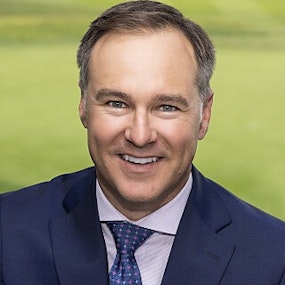
Immelman, Trevor
Golf Professional and Broadcaster
Trevor Immelman joined CBS Sports in December 2019 as a tower analyst for GOLF ON CBS coverage and was named as the network’s fifth lead golf analyst following the 2021-2022 PGA TOUR season.
Originally from South Africa, Immelman competed professionally for two decades on multiple professional tours, including the PGA TOUR, DP World Tour, and the Sunshine Tour. An 11-time winner worldwide, Immelman earned Rookie of the Year honors on the PGA TOUR in 2006, and two years later won the 2008 Masters Tournament.
Immelman competed as a player on two Presidents Cup teams (2005, 2007), and served as Vice Captain of the International team at the 2019 Presidents Cup. Most recently, he captained the International team at the 2022 Presidents Cup at Quail Hollow Club (Charlotte, N.C.).
New to FORE the Good of the Game?
Here are some great episodes to start with. Or, check out episodes by topic.














